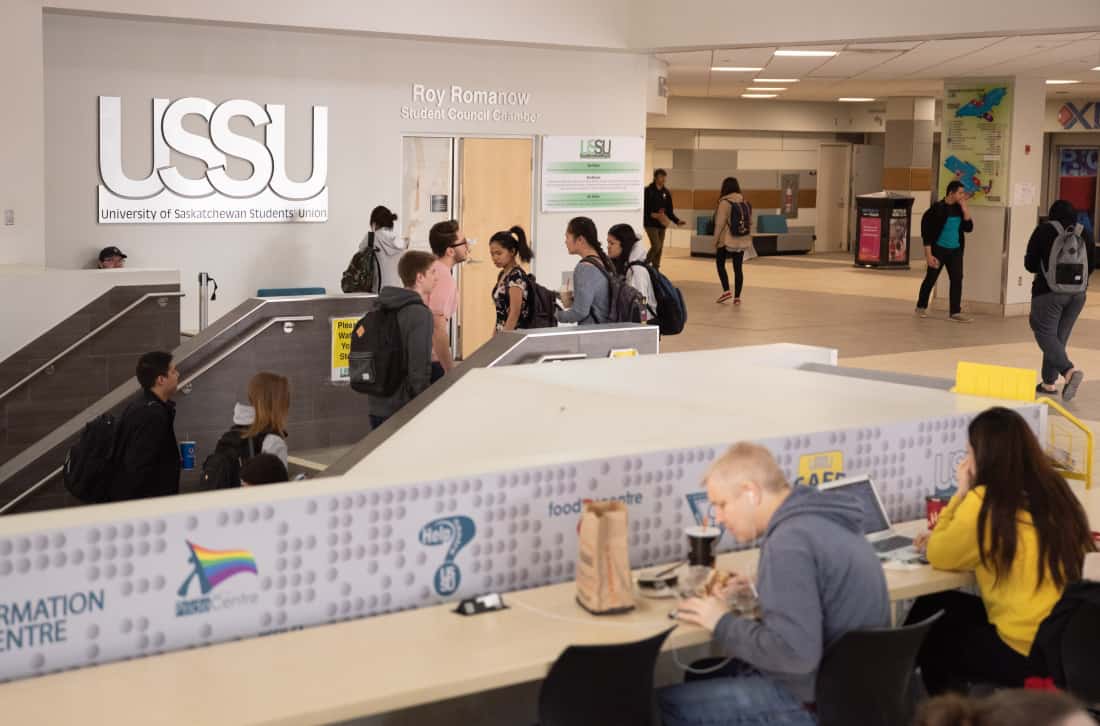
Representatives from both major Saskatchewan universities’ student unions express concern over the new provincial budget, fearing students will suffer most from cuts.
“The Right Balance” budget announced on March 20 saw decreased direct funding for students, with scholarship funds being reduced by 42 per cent. Advanced education, as a whole, saw no increases. The University of Saskatchewan Students’ Union and the University of Regina Students’ Union perceive the budget as unfavourable for students while the U of S administration thinks of it as a return to a balanced budget.
The cuts to scholarship funding affect the availability of awards like the Saskatchewan Advantage Scholarship. The scholarship was previously available to all high school graduates attending post-secondary education in the province but will now be distributed based on economic eligibility.
Brent Kobes, vice-president of operations and finance at the USSU, says the “$5.5 million cut to scholarship” funding affects the bottom line of most students at the U of S.
“I think that a budget balanced on the backs of students is not a balanced budget,” Kobes said. “‘The Right Balance’ would have included having continued support for students through scholarships.”
Kobes says if the institution is going to remain foundational to the province’s success, attending the U of S must be affordable, and the budget did not assist that.
“If having a high-quality, accessible post-secondary education is an important part of what the USSU needs and what the students and the province need, the government needs to invest in us,” Kobes said.
Jermain McKenzie, URSU vice-president of student affairs, shares the disappointment of the USSU with the provincial budget.
“This type of tightening the purse strings with the hope of reform without having a strong, robust public discourse is the wrong approach to take,” McKenzie said. “It just comes back onto the backs of students.”
McKenzie says the ramifications of an increasing price of education can impact how students perform academically as well.
“It’s also affecting the ability of students in postsecondary who require a substantial amount of time outside of class to study,” McKenzie said. “Students are having to go to work eight hours a day… How are they able to grasp and improve their knowledge?”
Peter Stoicheff, the U of S president, describes the budget as “comparable” to last year’s in a statement released on the university website on March 21. He says that the university and the provincial government are working together towards ensuring a world-class education and a balanced budget.
“We understand the provincial government has worked towards a balanced budget over the past several years,” Stoicheff said. “We have endeavoured to do our part during difficult economic times.”
In a statement provided to the Sheaf, the Ministry of Advanced Education emphasizes the increases to the operating funds of both institutions since the Saskatchewan Party was elected in 2007.
“Saskatchewan universities are well-funded when compared to other universities,” the statement said. “We have increased operating funds to our two universities by 53 per cent since 2007, more than double the increase in the cost of living.”
The USSU has not joined the decision by the URSU to launch a petition for a tuition freeze. However, both student unions have continued discussions with the Ministry of Advanced Education to share concerns about budgets that don’t favour students’ finances.
Kobes hopes to see more investment in students and universities going forward.
“Ultimately, students are our number-one priority, and investing in students is the best way to move forward, whether that is directly investing into students’ pocketbooks or into the institution,” Kobes said.
—
Noah Callaghan
Photo: Riley Deacon / Photo Editor
Leave a Reply